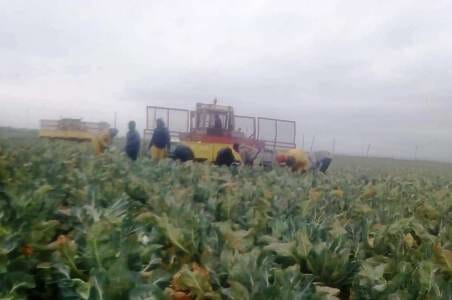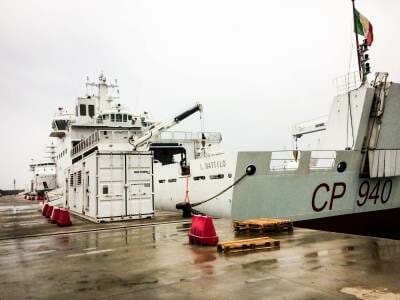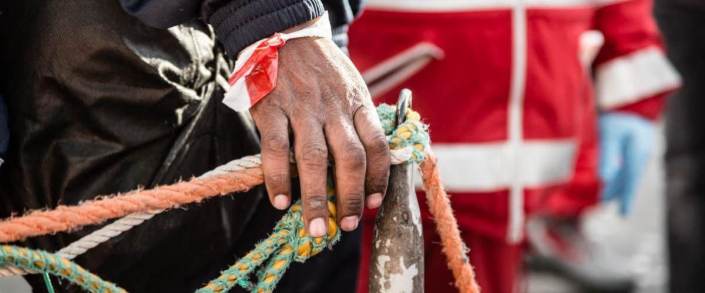Khadim’s unending night
“How are you brother, can I offer you a coffee? I would like to see you again even if only briefly, I am in Palermo because I need to renew my residency permit.”
After two years I see Khadim again, a small man that we accompanied on his Italian path passing unending obstacles.
He escaped at just 13 years old from his beloved Ivory Coast, after an uncle killed his entire family out of economic interests. He had to confront a journey studded with abuse, violence and forced labour.
When he sees me again, he crushes me between his powerful arms. His contagious smile is disfigured from a long scar that runs from his right ear to his lower lip, one of the gifts from the Libyan jailers.
Khadim has many scars on his body, because, thanks to his powerful physique, he was chosen by traffickers for forced labour and for every one of his refusals there was a punishment, a stabbing, a barrage of punches.
Khadim saw many people die in front of him: “You know, friend, I still cannot sleep at night. I am going to the doctor like you told me to, but the nightmares won’t stop. I see Demba, Ahmed, little Fathia, they scream, and then I hear their soft cries getting weaker until the silence, a mortal silence that continues to distress me. You told me that with time they would pass, but instead, they don’t go away.”
I take his powerful hands and I tell him not to give up, to continue to listen to the doctor and that one day I hope you will find peace. Words said with my heart in my mouth because I am not certain that all of Khadim’s and many others’ atrocious stories can one day give them a break. It is difficult for me, like for the other social workers, to listen to terrible stories without having lived them. I don’t dare imagine how it could feel in the middle of the night, when the memories are amplified by the silence.
Do the politicians ever think of all of this? Of the pasts of these people, of the tortures and the aftermath that these leave in their bodies and souls?
Khadim has so many things to tell me. He speaks of the difficulties of living in Foggia where he has come to understand that accepting to be exploited is the only way that he has to earn money. We laugh at the fact that they pay him a little more respect than the others because he is huge “My life continues to be a never-ending battle, from five in the morning until seven at night. My spine is in pieces, but I can’t stop, otherwise there is an unending line for the owners. If you are slow they swap you, and everyone knows how it works: the police, the activist labour unions. But nothing changes. Why is Italy so cruel to us?”
He shows me some photos and messages from his friends in Foggia, messages of desperation, requests for help that remain unanswered. The police destroy the shacks and nights passed camped out under the stars are constant: “We are the undesirables during the night because they say we occupy public soil, the tents and the shacks cannot stay there, however during the day on the farms no one watches us, we become invisible.”
And these invisibles die, they continue to die in everyone’s silence: 1500 in the last few years in Italy, in our countryside, 1500 state homicides, a silent war against the most weak and undefended. “Brother, you continue to build walls in Europe, you continue to spend money and money to defend what? Do you know how many kilometres of walls you have?”
“I don’t have any idea Khadim, but the biggest wall we have is in the heart.” And he underlines, “more than thousands of kilometres of walls in Europe, a fortress that does not see how many people die in the sea, where no one saves us anymore. Another cousin is dead, I didn’t hear from him in days. There were 50 of them and no one went to help them, not the Libyan assassins, nor the Italian instigators”
I nod, and I understand that he is probably referring to the latest massacre in which we left more than 50 people to die. There was even a request for help sent to the Alarm Phone, whose activity allows us to have a glimmer of knowledge of facts that confirm the massacre that is taking place in Libya and in the sea.
The recent news that another three boys, Samuel, Solomon and Melake, died of tuberculosis after they tried the hopeful journey and were taken back by the Libyan coast guard, in one of the 5-star hotels that Italy finances. “Alberto there will now be a massacre of brothers that if they don’t fight will be killed by a gun, and it will be you behind the trigger, you have allowed them to take us back to hell. You will continue to say that Libya is safe, when they are using my brothers to fight their oil war, it will be a massacre made with your weapons and my brothers will die.” According to UNHCR data, some migrants were provided with military uniforms and have been promised their freedom in exchange for enlistment – obviously it is not a free choice – and amongst them would be many minors.
The good giant bows his head and cries, he covers his face, he doesn’t want to appear fragile, he does not want to share the weight of 20 years of pain. Silence follows the sound of tears and so I put my head on his and tell him that he has plenty of reasons to be angry, but that we have to continue to ask for justice and to fight with the passion that he and many others show for life. A life that continues to be put in danger and depreciated by our governments, that for a handful of votes continue to turn a blind eye without shame for the contradictions that they embody: on one hand sponsoring “the traditional family” with a shameful congress like that of Verona and on the other they want to dismember the families on board Alan Kurdi. They want only the women and children to disembark, whilst the fathers must remain on board.
Three full hours of life passed with a young, great man, and with a renewed date to go to the police together, with the promise to see each other again when he goes to Campobello for the olives and with the usual request: “Brother do not stop fighting, in the end there are more of you than what you believe. Do not let this rabble win. I cannot continue to live in the shade and in fear, for that the night is enough for me.”
See you soon, Khadim.
Alberto Biondo
Borderline Sicilia
Translated by Meg McLellan





